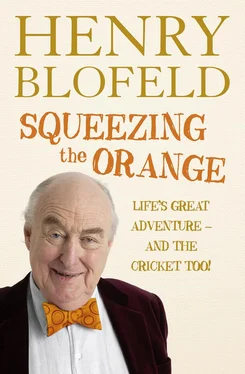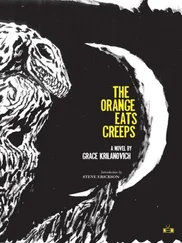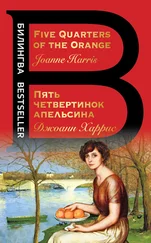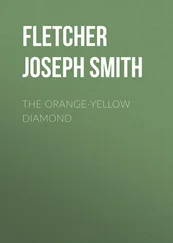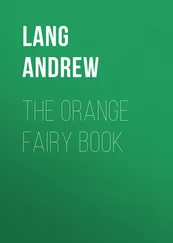1 ...6 7 8 10 11 12 ...22 Mr Burrows lived in a room, full of heavy dark-brown furniture, between the upper dormitory and the upper cubicles, from where he administered justice and discipline. He was a recognised and fully-paid-up beater, and a cane in his hands was much more a weapon of war than in Mr Fox’s. His initials were JB – for John Berry, perhaps – and his nickname was ‘Budgie’. I never remember any of his teaching colleagues slapping him on the back and calling him John, or Berry for that matter. When I joined the third form, over which he presided, I found him frighteningly unforgiving. If you were clever and were at the top of the form and gained his respect, he was a bit better. If it had not been for the soccer I would have got it in the neck.
I wonder if Mr Burrows was ever truly happy. But before we leave him, I should mention that when some of us had reached a certain age, he would allow us into his room by the upper dormitory at a quarter to seven in the evening to listen to Dick Barton, Special Agent . Agog, we followed the machinations of Barton, Snowy, Jock and the others as though our lives depended upon the breathtaking drama. Dick Barton was definitely not Mr Burrows’ cup of tea, and he never stayed to listen. Later in life I wondered if Mr Burrows ever found an obliging woman. I doubt it. But then, did he ever want one? I imagine every private school in those days had its Mr Burrows.
Miss Paterson, or Patey, who came onto the books in 1940, was not quite polished enough to have been a contender for the Lady Constance Keeble spot, but she, like Mrs Fox, would have been a definite runner for aunt-like status. I think she and Aunt Agatha would have got along pretty well, although she had about her more than a hint of Rosa Klebb, who made James Bond’s life pretty uncomfortable in From Russia, with Love . The debate about her Christian name continues. ‘Emmeline’ has its supporters, but ‘Eileen’ is probably just the favourite. They both fitted. She was spectacularly uncompromising, and did not tolerate nonsense in any way whatever. If she had a sense of humour, she wasn’t letting on. She had the unfortunate habit of shaping her ‘R’s with a loop, as they appear on Harrods vans. This particularly distressed Nicholas Howard-Stepney who spoke contemptuously of ‘Patey Rs’. Patey had a feminine enough shape, but with a keep-your-distance sort of face – and never to my knowledge did she have a single suitor. I think she would have discouraged passion in any form, and might not have been very good at it. She wore sensible shoes and even more sensible stockings, and spoke like a regimental sergeant-major. I can’t imagine her in a warm, let alone a passionate embrace, although people who give that impression can sometimes come up against the wind. Patey was also, rather surprisingly, my first cricketing mentor. She was in charge of the third-form game, and was forever marshalling the troops. The game was played on a small piece of roughish ground somewhere between the raspberry cages and the railway line, which may give it a romantic connotation it does not deserve.
Miss Paterson must have been in her upper thirties, and there was a fair amount of her. She wobbled a good deal, both fore and aft. She loved to take part in the cricket, or at any rate she felt it was her duty to do so. I don’t ever remember her batting, but she always opened the bowling. The pitch was only about fifteen yards long, if that, and while there were two sets of stumps, there were no bails. We had puny little bats, but there were no pads or gloves, and boxes were not even a gleam in anyone’s eye. Patey ran in off about five paces, and bowled underarm with a certain nippiness. If she hit you on the shin, it made you yelp a bit, and she would launch herself into an extravagant, almost Shane Warne-like appeal. This was a little strange, because there was no umpire. That didn’t worry her in the least, because she immediately metamorphosed herself into the umpire and gave you out. You certainly did not question her decision. She wasn’t the worst bowler, and I can tell you that her swingers went both ways all right.
They were the first swingers I ever took a serious interest in. She had another interesting physical attribute: her front teeth were unstoppable. If you ran round a corner in a passage in the school and she was there, you would put your hands up in front of your face to protect yourself from the upper lot. I remember thinking some years later that if there was such an event at the Olympic Games as eating corn on the cob through a Venetian blind, Miss Paterson would have been on top of the rostrum accepting the gold medal and shaking up the champagne with the best of them.
As far as the runners and riders were concerned at Sunningdale, those were most of the bookies’ favourites. But there was also a pretty good list just behind the leaders. Charlie Sheepshanks, ‘Sheepy’, who had clocked in from the Brigade of Guards soon after hostilities had been concluded in 1945 with a scar on his face which was evidence of close contact with the enemy, was a congenial, Bertie Wooster-like figure. His brother had been killed in the Spanish Civil War, and at Sunningdale Sheepy lived with his mother in a house in the grounds. He played the organ in chapel, or the tin tabernacle, as we knew it, and did so with a certain brio. Good-looking, black-moustached with a ready smile, a bit of a leg-spinner and greatly liked by us all, he shared Mr Fox’s schoolroom where he presided over maths, genially, unpretentiously, amusingly and with indefatigable cheerfulness. He was the dearest of men, and went on to marry Mary Nickson, who was the daughter of my first housemaster at Eton. He also ran the cricket at Sunningdale, taking over from a Mr Kemp, who left soon after I arrived.
After Sheepy retired from educational activities, he and Mary moved to his family home in the village of Arthington in Wharfedale, where they would entertain the Test Match Special team to dinner in splendid style during the Headingley Test match. The banter between the Bishop of Ripon and Jim Swanton will not easily be forgotten. Jim regarded the bishop as an extremely close cohort of the Almighty, and tried to speak to him with a humble sanctity, while the bishop, who was only a suffragan, would leave religion at home for the evening. Sheepy was a passionate gardener and fisherman, and a great friend of Brian Johnston – they were both infectious laughers – with whom he fought innumerable battles on the tennis court. He was also a wizard on the Eton fives court. While at Sunningdale – of which he became headmaster for a time after Fox had retired – he joined forces with J.M. Peterson, an Eton housemaster whose sons were at Sunningdale, and together they won the old boys’ Eton fives competition, the Kinnaird Cup, for year after year. For me, Charlie Sheepshanks was a real-life mixture of Biggles, Bulldog Drummond and Bertie Wooster.
Then there was Mr Tupholme, who came from Bournemouth or thereabouts, and was a long-standing taker of the fifth form. He was an excellent schoolmaster who made everything fun for the boys, while the more solemn members of the staff across the landing would have made the prophet Job seem a bit of a laugh. We listened to Tuppy because he had the knack of making everything fun, but interesting and important at the same time. He was in charge of rugger in the Lent term, bowled a bit in the nets during the summer, and presided genially over the swimming pool. Everyone loved him. Medium-height, plump, eternally cheerful, eyebrows that curled like Denis Healey’s, he was never fierce, never shouted, and bought us Dinky Toys to order on his frequent visits to Windsor. As a boy, one always felt that Tuppy was up for anything, and we loved him. PGW would have turned him into Lord Ickenham. Another of Tuppy’s sidelines was the model railway, which he organised in the Army Hut, a rather Spartan, military-looking building at the far end of the school where the school concert was held. In my first concert, which Tom and Grizel dutifully, and I suspect reluctantly, attended, I had to sing one verse of ‘Cock Robin’. I doubt there has ever been a more tuneless rendering of any song since mankind first put its larynx on the stage.
Читать дальше
